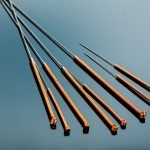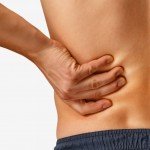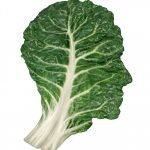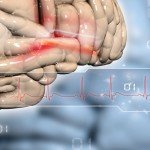Treating Depression: Naturopathic Strategies for Successful Outcomes
Todd Born, ND
Depression is the leading cause of disability worldwide. According the World Health Organization (WHO), depression affects about 350 million people.1 Untreated depression can lead to suicide, and the WHO estimates that 1 million people, worldwide, commit suicide every year. Their estimates project that depression will rise to second place in the global burden of disease listing by the year 2020.1
The Diagnostic and Statistical Manual of Mental Disorders, 4th edition (DSM-IV), delineates the different types of mood episodes and mood disorders. The pedantic details are beyond the scope of this article. I will discuss how naturopathic medicine looks at and treats depression. In general, all subtypes are simply referred to as “depression.”
According to the Centers for Disease Control (CDC)’s 2005-2006 statistics, more than 1 in 20 Americans 12 years of age and older had current depression.2 Persons 40-59 years of age had higher rates of depression than any other age group. Persons 12-17, 18-39, and 60 years of age and older had similar rates of depression. Depression was more common in females than in males. Non-Hispanic black persons had higher rates of depression than non-Hispanic white persons. These rates are much the same today.2
A conservative estimate is that at least 50% of the patients in my practice have some type of mood disorder. It may not even be the main reason they come to see me, but it’s on their “problem list.”
Treatment of Depression
Two of the cardinal rules of naturopathic medicine – 1) treat the whole person, and 2) therapeutic order (ie, from the least invasive/aggressive, to the most invasive/aggressive treatments) – give naturopathic physicians a distinct advantage over our allopathic brethren. Our strategies look at mental, emotional, and physical aspects of the person in addressing his or her concerns. Although some individuals do, in fact, have a “chemical imbalance,” very few have a fluoxetine or citalopram deficiency. Study after study bears this out.
Authors of an article titled “Efficacy and Effectiveness of Antidepressants: Current Status of Research,” in the journal Psychotherapy & Psychosomatics, reviewed 4 meta-analyses of efficacy trials on antidepressants and the STAR*D (Sequenced Treatment Alternatives to Relieve Depression) trial.3 Their conclusions: “antidepressant studies with favorable outcomes were sixteen times more likely to be published as those with unfavorable ones… antidepressants are only marginally efficacious compared to placebos… the effects of antidepressants diminish more rapidly than those of placebo.”3
Research conducted by Dr Irving Kirsch, who was interviewed on “60 Minutes” a few years ago, also determined that with mild-to-moderate depression, antidepressants are no more effective than placebo.4
So, do people get better on antidepressants? Yes, but not because of the chemicals that the drugs are altering, except for those with severe depression. The leading theory is that it’s nothing more than the placebo effect enabling the power of the mind to treat the depression.5 On the other hand, the side effects that many individuals experience on these medications often drive them to see a naturopathic physician. Mayo Clinic reports the following common side effects of antidepressants: nausea, increased appetite, weight gain, sexual side effects, fatigue, drowsiness, insomnia, dry mouth, blurred vision, constipation, dizziness, agitation, restlessness and anxiety.6
Naturopathic Approach
Back to the therapeutic order tenet of the naturopathic approach to treatment (least invasive, least aggressive, first)… Number 1: look for causation. Anemias, thyroid disorders, MTHFR polymorphisms, other genetic predispositions, prolonged stress, glucose (blood sugar) imbalances, adrenal dysfunction (DHEA-S), or deficiencies of zinc, magnesium, B12, folate, or vitamin D, to name a few, should all be addressed according to blood work and clinical picture.7-11There are many treatment options, but I only have space to mention a few.
Remove the obstacles to cure. This should always be the first step. Depression can often be situational. Work, family, home environment, toxic or poor relationships, negative outlook(s), etc. Some of these cannot be changed, some can. For the ones that can, behavioral therapy works beautifully. It can give a person better coping strategies and the ability to change one’s outlook and perception of situations. Furthermore, just as combined behavioral therapy and medication management produce better outcomes than either one alone, so do natural therapies. I always strongly encourage my patients with depression to also be in therapy, and to find a therapist with whom they resonate within the first few minutes of meeting them. If you don’t like the person you’re working with, treatment won’t work as well.
Exercise12: We know how good it feels to exercise. Physical activity releases some of our feel-good hormones: dopamine and serotonin (not to mention adrenaline). Furthermore, exercise also helps us feel better about how we look, which further bolsters exercise’s antidepressant effects. Even better, if we can get outside, being in the great outdoors and getting fresh air further enhances exercise’s health benefits. “Earthing” has borne this out.13
Diet:We know that we should be eating more whole foods, fresh fruits and vegetables, less saturated fats, trans fats, and processed foods. Now there’s some good research evidence that confirms this. A study published in the February issue of Canadian Journal of Psychiatry looked at 97 adults diagnosed with mood disorders. Participants kept 3-day food diaries and food-frequency questionnaires. Their Global Assessment of Functioning (GAF), Hamilton Depression Rating Scale, and the Young Mania Rating Scale showed significant correlations between psychiatric function and nutrient intake; furthermore, the vitamins and minerals in participant’s diets were what were associated with the higher scores.14 Imagine how you feel when you eat that McDonald’s meal, versus baked salmon with lemon, a side of lightly-steamed vegetables, brown rice, and salad.
Botanical medicine:Many herbs have a long history of traditional use in depression. Many of these also have research trials demonstrating their efficacy. One of the most well-known is Hypericum perforatum,or St John’s wort. Trials comparing St John’s wort to sertraline,15 fluoxetine,16 fluvoxamine,17 and citalopram18 have not only shown the particular herb to be superior to placebo, but also to be just as effective as the medications but with far fewer side effects. However, long-term use of St John’s wort should be monitored because it can cause photosensitivity and interact with many medications.
Nutrients and amino acids: Zinc plays a role in over 100 enzymatic reactions in the body. Enzymes are what enable reactions to take place. When zinc is deficient, these reactions don’t work optimally. Zinc is essential in maintaining and developing neurological networks and communication. One of the leading theories on the relationship between zinc and depression is that zinc is a necessary cofactor for neurotransmitter production and function.19
L-tryptophan and 5-hydroxytryptophan (5-HTP)20 are amino acid precursors to serotonin. If these amino acids are combined with SSRIs, a condition called serotonin syndrome can sometimes result. This can cause irreversible damage in many organ systems or even death.
Omega-3 fatty acids: In an 8-week trial of 60 outpatients, a 1000-mg dose of EPA was found to be similar to fluoxetine in terms of effects on depression (though EPA and fluoxetine in combination outperformed either alone).21 Omega-3 fats were also shown in a controlled, double-blind pilot study to outperform placebo in children with depression.22 And in another study, psychological scores were significantly improved after 8 weeks among those who were supplemented with 1050 mg EPA plus 150 mg DHA per day, compared to placebo.23
SAM-e: S-adenosylmethionine is naturally produced in the body. It has been shown to be effective, even in major depression.24 SAM-e acts as a methyl donor in pathways that form nucleic acids, proteins, phospholipids, and neurotransmitters. Two major drawbacks of oral supplementation of this substance are poor oral absorption and cost. Furthermore, like tryptophan and 5-HTP, it can cause serotonin syndrome.25
Biotherapeutic drainage/biological medicine: This system of medicine from Germany, Holland, and France has been around since about the 1920s. Biotherapeutic drainage utilizes combinations of herbs and minerals that are system- and organ-specific, eg, central nervous system, endocrine (hormones), and cardiovascular. The theory is that the ingredients optimize and correct a particular system’s function. One of my mentors used to tell me, “It is easier to correct physiology than pathology.” Correcting the physiology helps to correct the pathology. I have used biotherapeutic drainage in my practice for 4 years and have seen it work wonders.
Homeopathy: From experience, I consider this to be the most corrective and permanent solution to mood disorders. I have literally seen it work “miracles.” The aforementioned treatments, other than drainage, are essentially “green allopathy”(using a natural substance in lieu of a medication). Homeopathy uses natural agents in lieu of pharmaceutical medications. The former can be helpful and effective, but often not permanently.
Patients who may already be on pharmaceutical medications might be worried about potential interactions. These are logical and legitimate concerns. This is where homeopathy can play a significant role in healthcare.
Being an “energetic” medicine, homeopathy does not interact with other medications, supplements, or herbs. Much like naturopathy, it takes a person’s physical, mental, and emotional picture and puts the pieces together like a jigsaw puzzle to match them to 1 of about 5,000 remedies – a seemingly daunting task. Although the science and art behind homeopathy are very challenging, a good naturopathic physician can usually find the right remedy in a timely manner.
I have used homeopathy to help many patients not only wean off their medications, but also lift the cloud of depression from their lives like never before. Here is just one success story…
Case Study
During my residency in Seattle, I had a 28-year-old male patient who presented with fatigue, depression, anxiety, anger issues, and low libido (despite the fact that he was married within the last year, loved his wife and was deeply attracted to her).
He described his depression as sometimes feeling like he was living outside his body; he couldn’t think or concentrate, and he had difficulty being motivated. This was compounded by the fact that he and his wife had just moved to Seattle from a sunny location and were having a difficult time adjusting to the long, cold, dark days for which Seattle is infamous. He was also having trouble making friends and finding a job.
I ran the usual labs to rule out organic etiologies: iron deficiency anemia, megaloblastic anemias, low vitamin D, hypothyroidism, low testosterone, and low cholesterol. All were normal except for a slightly low vitamin D level. I encouraged him to see a colleague of mine for counseling. I suggested that he try www.meetup.com for a social outlet, instead of staying home all day looking for a job in a difficult market. I repleted his vitamin D and put him on a high-quality fish oil supplement. This went on for about 6 weeks, with very little improvement.
I decided to give him homeopathic Lycopodium. Two weeks later, on New Year’s Day, I received an e-mail from him telling me that everything was worse than before! He denied any suicidal or homicidal ideations, but was certainly not doing well. I told him that it was not uncommon to experience what is known in homeopathic theory as a “healing crisis.” (I prefer the term, “healing reaction.”) I asked him to come and see me the next week since I was on vacation.
A few weeks went by with no change. I gave him a different homeopathic remedy – Aurum metallicum. At his follow-up a month later, it was as if a veil had been lifted from his life. He could think and concentrate, and he had regained his passion for photography. He reported that he felt better than he had in many, many years. His relationship with his wife improved. My colleague who was seeing him for counseling said he no longer needed his services. Two more weeks went by and he found a job. Life was good again. I spoke with him about 3 months later and his depression was still resolved.
Todd Born, ND is in private practice with his wife, Dr Lindsay Jones-Born, at Born Naturopathic Associates, Inc, in Alameda, CA (www.bornnaturopathic.com). He is also Product Manager at Allergy Research Group, LLC and a Thought Leader for UK-based “Clinical Education,” a free peer-to-peer service that offers clinicians a closed forum to ask clinical questions and receive evidence-based responses by experts in their fields. Dr Born graduated from Bastyr University in Seattle and completed his residency at the Bastyr Center for Natural Health and its 13th teaching clinic, with rotations at Seattle-area hospitals.
References
- World Health Organization Media Centre. Depression Fact Sheet. October 2012. http://www.who.int/mediacentre/factsheets/fs369/en/index.html. Accessed February 6, 2014.
- Pratt LA, Brody DL. NCHS Data Brief. Depression in the United States Household Population, 2005-2006. CDC Web site. http://www.cdc.gov/nchs/data/databriefs/db07.htm. Updated 1/19/2010. Accessed February 6, 2014.
- Pigott HE, Leventhal AM, Alter GS, Boren JJ.Efficacy and effectiveness of antidepressants: current status of research. Psychother Psychosom. 2010;79(5):267-279.
- 60 Minutes. Treating Depression: Is There a Placebo Effect? CBS News Web site. http://www.cbsnews.com/news/treating-depression-is-there-a-placebo-effect/. Accessed February 6, 2014.
- Kirsch I. Challenging received wisdom: antidepressants and the placebo effect. Mcgill J Med. 2008;11(2):219-222.
- Mayo Clinic. Antidepressants: Get tips to cope with side effects. July 9, 2013. Mayo Clinic Web site. http://www.mayoclinic.org/diseases-conditions/depression/in-depth/antidepressants/ART-20049305. Accessed February 6, 2014.
- Davison KM, Kaplan BJ. Nutrient intakes are correlated with overall psychiatric functioning in adults with mood disorders. Can J Psychiatry. 2012;57(2):85-92.
- Petenaude C. Depression? Think Zinc! Holistic Primary Care Web site. Spring, 2013:13(1). http://holisticprimarycare.net/topics/topics-o-z/vitamins-a-supplements/1288-depression-think-zinc.html. Accessed February 6, 2014.
- Gilbody S, Lewis S, Lightfoot T. Methylenetetrahydrofolate reductase (MTHFR) genetic polymorphisms and psychiatric disorders: a HuGE review. Am J Epidemiol. 2007;165(1):1-13.
- Hatzinger M. Neuropeptides and the hypothalamic-pituitary-adrenocortical (HPA) system: review of recent research strategies in depression. World J Biol Psychiatry. 2000;1(2):105-111.
- Hannon TS, Rofey DL, Lee S, Arslanian SA. Depressive symptoms and metabolic markers of risk for type 2 diabetes in obese adolescents. Pediatr Diabetes. 2013;14(7):497-503.
- Penninx BW, Rejeski WJ, Pandya J, et al. Exercise and depressive symptoms: a comparison of aerobic and resistance exercise effects on emotional and physical function in older persons with high and low depressive symptomatology. J Gerontol B Psychol Sci Soc Sci. 2002;57(2):P124-P132.
- Chevalier G, Sinatra ST, Oschman JL, et al. Earthing: health implications of reconnecting the human body to the Earth’s surface electrons. J Environ Public Health. 2012;2012:291541.
- Davison KM, Kaplan BJ. Nutrient intakes are correlated with overall psychiatric functioning in adults with mood disorders. Can J Psychiatry. 2012;57(2):85-92.
- Brenner R, Azbel V, Madhusoodanan S, Pawlowska M. Comparison of an extract of hypericum (LI 160) and sertraline in the treatment of depression: a double-blind, randomized pilot study. Clin Ther. 2000;22(4):411-419.
- Schrader E. Equivalence of St John’s wort extract (Ze 117) and fluoxetine: a randomized, controlled study in mild-moderate depression. Int Clin Psychopharmacol. 2000;15(2):61-68.
- Rahimi R, Nikfar S, Abdollahi M. Efficacy and tolerability of Hypericum perforatum in major depressive disorder in comparison with selective serotonin reuptake inhibitors: a meta-analysis. Prog Neuropsychopharmacol Biol Psychiatry. 2009;33(1):118-127.
- Singer A, Schmidt M, Hauke W, Stade K. Duration of response after treatment of mild to moderate depression with Hypericum extract STW 3-VI, citalopram and placebo: a reanalysis of data from a controlled clinical trial. Phytomedicine. 2011;18(8-9):739-742.
- Swardfager W, Herrmann N, McIntyre RS, et al. Potential roles of zinc in the pathophysiology and treatment of major depressive disorder. Neurosci Biobehav Rev. 2013;37(5):911-929.
- Coppen A, Whybrow PC, Noguera R, et al. The comparative antidepressant value of L-tryptophan and imipramine with and without attempted potentiation by liothyronine. Arch Gen Psychiatr. 1972;26:234-241.
- Jazayeri S, Tehrani-Doost M, Keshavarz SA, et al. Comparison of therapeutic effects of omega-3 fatty acid eicosapentaenoic acid and fluoxetine, separately and in combination, in major depressive disorder. Aust N Z J Psychiatry. 2008;42(3):192-198.
- Nemets H, Nemets B, Apter A, et al. Omega-3 treatment of childhood depression: a controlled, double-blind pilot study. Am J Psychiatry. 2006;163(6):1098-1100.
- Lespérance F, Frasure-Smith N, St-André E, et al. The efficacy of omega-3 supplementation for major depression: a randomized controlled trial. J Clin Psychiatry. 2011;72(8):1054-1062.
- Janicak PG, Lipinski J, Davis JM, et al. S-adenosylmethionine in depression. A literature review and preliminary report. Ala J Med Sci. 1988;25:306-313.
- Iruela LM, Minguez L, Merino J, Monedero G. Toxic interaction of S-adenosylmethionine and clomipramine. Am J Psychiatry. 1993;150(3):522.











